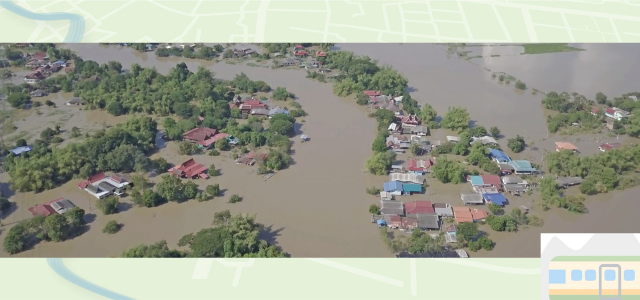“There are many climate-related risks, for instance changing freshwater ecosystems and disasters in the shape of floods and droughts. Basically, all our fundamental assumptions about water allocation may change because the amount, quantity, and quality of water is under change. But there is only one option: we must adapt to the situation," said Barbara Janusz-Pawletta as she introduced the session theme.
Janusz-Pawletta is UNESCO Chair in Water Management in Central Asia at the Deutsch-Kasachische Universität in Kazakhstan and a member of the GWP Technical Committee. She co-chaired the event with Otto Spijkers from Wuhan International Water Law Academy.
Sonja Koeppel, Secretary of the Water Convention and co-Secretary of the Protocol on Water and Health at UNECE, presented the Water Convention and Watercourses Convention along with best practices and lessons learned on international water law through these conventions. Ingredients of success have been identified, such as bringing together political and expert levels, combining strategy development with concrete activities on the ground, and civil society involvement.
Nagaraja Rao Harshadeep, Global Lead for Disruptive Technology in the Sustainable Development Practice Group at World Bank, spoke about the role of big data in managing the consequences of climate change on transboundary waters. One of the big challenges is how to use the available data because for it to be useful it needs relevant analysing and structuring. Big data types, collection and analytics methods, services, and use need to be better reflected in international water law.
Didier Zinsou, Director of the Niger Basin Observatory, shared a practitioner’s view on the work to manage climate change in a transboundary basin. He stressed that regulatory frameworks are needed to support the strategies for transboundary aquifers in a climate change context.
The series is based on different topics from the Massive Open Online Course (MOOC) for Governance for Transboundary Freshwater Security, and it is led by GWP Senior Network & Transboundary Water Cooperation Specialist Yumiko Yasuda. She shared encouraging statistics: “Since we opened the MOOC in August 2020, it has attracted over 2,000 participants from 147 countries around the world, confirming the need and interest for learning about this subject.”
Watch the recording of the session - also available with FRENCH interpretation.
Coming up:
The ‘Transboundary Freshwater Security Governance Train’ continues with two more events:
Session 5: International Water Law & Infrastructure Projects (18 May 2021): What are the legal rules and procedures for building major infrastructure? How does international water law, human rights and international investment law combine to deal with these issues?
Session 6: International Water Law & Groundwater (15 June 2021): How is transboundary groundwater governed – what are the legal rules that apply and how to implement these in practice? Focus on existing best practice and key challenges.

